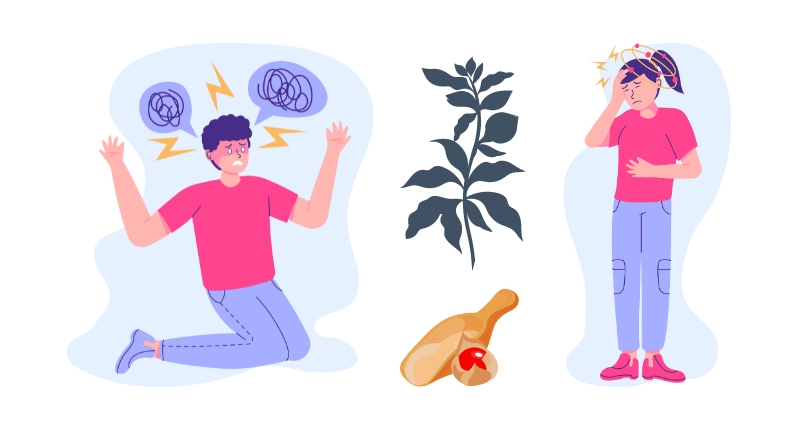People are increasingly relying on alternative and natural treatments to maintain their mental health. Ashwagandha (Withania somnifera), one of the many herbs and botanicals, has drawn interest because of its potential to support mental health.
Ashwagandha has a long history of use in conventional Ayurvedic medicine and has been linked to a wide range of health advantages, including lowered levels of stress, better moods, and improved cognitive function.
This article examines Ashwagandha’s potential as a herbal treatment for mental health, emphasising its mechanisms of action, effectiveness, and the accessibility of premium tinctures from an Irish online pharmacy called Dr. Ashwa Me.
Ashwagandha: An Ancient Adaptive Herb
Ashwagandha, also known as Indian ginseng or winter cherry, is a small shrub native to the dry regions of India, North Africa, and the Middle East. With a rich history dating back thousands of years, this adaptogenic herb has been an integral part of traditional Ayurvedic medicine.
Adaptogenic Properties and Mental Health
Adaptogens are natural substances that help the body adapt to various stressors, both physical and psychological. Ashwagandha is widely recognized as one of the most potent adaptogens available, making it an appealing option for those seeking natural solutions for mental health concerns.
According to research, ashwagandha can control the body’s stress response by controlling the levels of cortisol, a hormone that is released when under stress. Ashwagandha may help relieve anxiety and depression symptoms, encourage relaxation, and elevate mood by lowering cortisol levels.
Cognitive function and Neuroprotective Effects
In addition to having adaptogenic qualities, Ashwagandha also has neuroprotective properties that could have an impact on mental and cognitive health. Ashwagandha has antioxidant properties that help shield brain cells from oxidative stress and harm from free radicals, according to studies. Ashwagandha has the potential to help with memory, cognition, and general mental health by maintaining neuronal function.
The Science of Ashwagandha for Mental Health
Numerous scientific investigations have been carried out to determine how well Ashwagandha works to support mental health and wellbeing. The key conclusions from a few of these studies are highlighted in the sections below:
Anxiety and Stress Reduction
Research has consistently demonstrated Ashwagandha’s potential in reducing symptoms of anxiety and stress. A double-blind, placebo-controlled study involving individuals with a history of chronic stress found that Ashwagandha supplementation led to significant reductions in stress and anxiety scores compared to the placebo group.
Depression Control
Ashwagandha has demonstrated promise as a complementary treatment for treating depression symptoms. Participants with major depressive disorder who received Ashwagandha extract in a randomized, double-blind, placebo-controlled trial showed significantly lower depression scores than those in the control group.
Enhancing Cognitive Function
Studies have looked at how Ashwagandha affects memory, attention, and cognitive function. According to one study, adults with mild cognitive impairment who supplemented with ashwagandha experienced improvements in their short- and long-term memory, attention, and information processing speed.
Improvement of Sleep Quality
A healthy sleep schedule is essential for maintaining mental health. Ashwagandha’s potential to enhance sleep quality has been researched. Ashwagandha supplementation improved sleep quality, decreased sleep latency, and increased overall sleep time in a pilot study involving people with insomnia.
Tinctures of Excellence from Dr. Ashwa Me
Selecting a trustworthy source is crucial when thinking about taking supplements with ashwagandha to ensure product quality and effectiveness. A high-quality selection of Ashwagandha tinctures are available from Dr. Ashwa Me, an Irish online retailer, to assist you in maintaining your mental health.
Dr. Ashwa Me guarantees the highest caliber of their products through their dedication to sourcing premium ingredients and applying strict quality control procedures. Their tinctures of ashwagandha are meticulously created to preserve the herb’s bioactive components, ensuring maximum potency and effectiveness.
Visit their online store to learn more about the variety of Ashwagandha tinctures they offer.
Concluding Thoughts
Ancient adaptogenic herb ashwagandha has a lot of potential as a homeopathic treatment for mental health issues. Ashwagandha provides a holistic approach to supporting mental well-being with its potential to lower anxiety, manage depression, improve cognitive function, and enhance sleep quality.
Scientific studies offer important proof of Ashwagandha’s effectiveness in promoting mental health. But it’s important to speak with a doctor before beginning any new supplement regimen, especially if you have existing health issues or are taking medication.
If you’re thinking about taking Ashwagandha supplements, Dr. Ashwa Me’s high-quality Ashwagandha tinctures are a trustworthy source to help you on your path to mental health.
References
- Chandrasekhar, K., Kapoor, J., & Anishetty, S. (2012). A prospective, randomized double-blind, placebo-controlled study of safety and efficacy of a high-concentration full-spectrum extract of Ashwagandha root in reducing stress and anxiety in adults. Indian Journal of Psychological Medicine, 34(3), 255–262. Link
- Cooley, K., Szczurko, O., Perri, D., Mills, E. J., Bernhardt, B., Zhou, Q., & Seely, D. (2009). Naturopathic care for anxiety: A randomized controlled trial. PLoS ONE, 4(8), e6628. Link
- Choudhary, D., Bhattacharyya, S., & Bose, S. (2017). Efficacy and Safety of Ashwagandha (Withania somnifera) Root Extract in Improving Memory and Cognitive Functions. Journal of Dietary Supplements, 14(6), 599–612. Link
- Langade, D., Kanchi, S., Salve, J., Debnath, K., Ambegaokar, D. (2019). Efficacy and Safety of Ashwagandha (Withania somnifera) Root Extract in Insomnia and Anxiety: A Double-blind, Randomized, Placebo-controlled Study. Cureus, 11(9), e5797. Link

